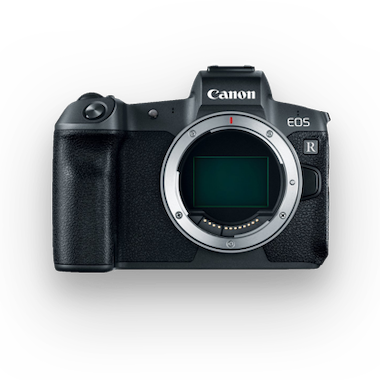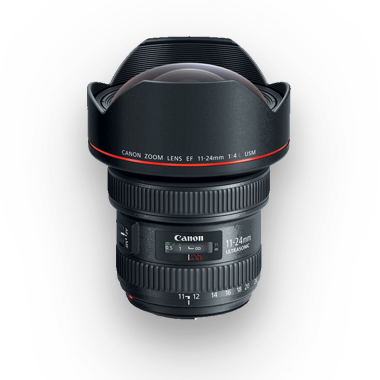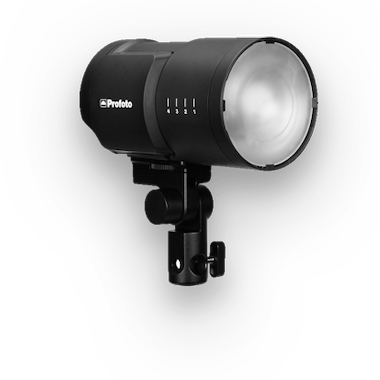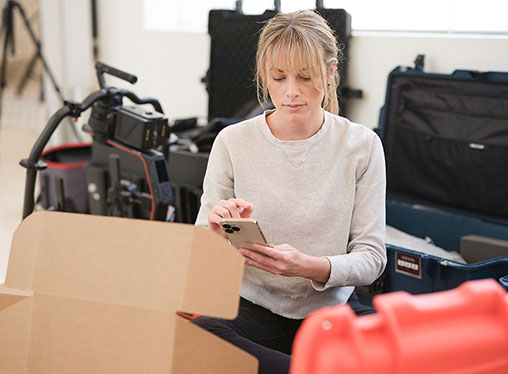
Gear Doesn’t Matter – Except When It Does
If you follow any part of the photographic blogosphere, you’ve heard folks repeat this mantra over and over and over again: “Gear doesn’t matter.”
The basic premise of that dictum is as follows: making great pictures is about the photographer, not the camera or the lens or any other piece of gear. A good photographer can make a great image with a point-and-shoot that an amateur armed with a Nikon D4 and an 85mm f/1.4 lens can’t match.
I’ve personally repeated the “It’s not the camera that takes the picture” mantra to new photographers myself because I know it to be true and because it helps allay the fears many photographers have when buying their first DSLR.
I’ve also made some images, like the one shown above of Highway 130 in the San Francisco Bay Area, that I still like. It was taken with a Canon Rebel XTi and an 18-55mm kit lens. So, yes, at a basic level, you can make great images with very basic gear. For newcomers, especially, this is a good sermon to preach.
But here’s the catch. You knew there was going to be one, right?
Before I tell you what that catch is, let me say this again, this time in bold and italic typeface: You don’t need expensive gear to get started in photography. Even a point-and-shoot will work. Use basic gear to learn the basics of photography before you start eyeing big gear.
OK. Here’s that catch: Gear doesn’t matter – except when it does.
Scott Kelby said it best on episode 46 of his show, The Grid:
“This is one that, boy, you’re gonna hear people get cranked about this, but by gosh, we talk about it privately, and we hear other people talk about it in small groups, but somebody’s gotta talk about it. I know that you’ve heard again and again and again on the web – someone’s gonna type this as soon as I say it – ‘It’s not about the camera. It’s not about the equipment.’ You know what it is? Here’s the truth. Sometimes, it is about the equipment. Sometimes it is and nobody wants to say that because everyone wants to be camera-politically correct….The reality of it is sometimes it is. If you want a certain look, sometimes you have to buy stuff.”
For the record, I agree with him. There are two key times when I think gear matters.
Gear Matters When You Begin to Specialize
When you’re first starting out with photography, you’re exploring the basics. You’re learning about composition and exposure, getting to know your camera and how it performs under various situations. At this point, when you’re first starting out, it’s not about the gear. Sure, you’ll want some basics, like a modern DSLR or digital rangefinder, but really, even a digital point-and-shoot will help you learn those basics. But at some point, you’re going to get beyond the basics. And you’re going to start drifting towards a specific genre of photography. That’s when gear is going to matter.
Let’s be clear here. You’re not very likely to photograph a hummingbird in the shade without a long lens and a camera that’ll perform well at ISO 1600+. You’re not likely to grab a shot of the wide receiver at a football game make the game-winning catch and isolate him from the crowded background, in stadium lighting, without a long lens and a wide-open (think 400mm at f/2.8) aperture.
When you drift towards specific genres, your gear will directly affect your ability to make the images you want. Long, fast lenses and high-ISO cameras may be necessary for some types of photography, while more megapixels and strobes with a short duration may be more appropriate for freezing subjects in mid-motion. That’s when gear will matter.
Specialized Gear After a Certain Level of Expertise
There are a lot of jokes that are circulating around on the subject of gear. One that I’ve heard time and time again goes along these lines: Some hapless dolt gapes at your awesome hummingbird shot and says, “Boy, that’s a great picture! You must have a great camera!” You get snarky and respond, “Yup. Got it from the same place Michelangelo bought his brushes.”
I guess that’s appropriate to some extent. As I said above, we have to stress the importance of the creator of an image. But you know what? I betcha Michelangelo did have great brushes. And paints. And whatever else painters use (rulers? palettes?).
There is a reason why painters sometimes obsess over the quality of their brushes, or why great chefs use thousand-dollar knives, pots, and pans. At some point, artists realize that getting great gear makes a difference to their art – not because they couldn’t create something without those top-notch tools, but because top-notch tools make it easier for them to execute their vision.
Here’s an example: I photograph birds from time to time. It’s something I’m not great at, but I love doing it. What I really wanted was to capture a hummingbird in flight. I wanted to freeze its wings, to grab a shot of it in mid-motion. I wanted a shot so detailed that you could see tiny feathers on the bird.
In the beginning, I tried using my Rebel XTi and my friend’s 100-400 lens. The hummingbirds, however, kept coming to flowers that were almost perpetually in shade, and my XTi’s ISO performance was not doing the trick. I needed to hit ISO 1000+ and it usually fell apart at ISO 400.
It wasn’t until I rented a Canon 1D Mark IV and a 600mm f/4 lens with a gimbal head that I was finally able to get the image you see above. At a 100% crop, you can even see the bird’s tiny feet. And cameras today are even more light sensitive! In short, this is when gear mattered.
I do think that when you’re just starting out, gear doesn’t matter. You need the very basics to learn the basics. In fact, if people would append the phrase “when you’re starting out” to “gear doesn’t matter”, I’d skip this whole diatribe.
But I’ve heard too many photographers – including some that I seriously respect and admire – repeat the “gear doesn’t matter” mantra without qualification. I wish someone had explained this to me in my early days. I spent a LOT of time chasing impossible images with my kit lens and nearly gave up on photography a few times.
I’ll leave you with this quote from photographer David DuChemin, who coined the phrase, “Gear is good. Vision is better.” This is from a comment he left on Zack Arias’ blog entry announcing his medium-format switch:
“I hate you. Been trying to dodge this reality for a while, and it’s coming closer and closer. I think I’m done with falling off walls for now, so might as well learn a new system. These posts are tough to do because inevitably someone gets in your grill about ‘the camera doesn’t matter’. And it really doesn’t. Unless you have specific needs, and then it does [emphasis mine]. And if the client even thinks they have the need for larger files, or you happen to love printing gigantic prints, then output matters and the kind of camera you have determines this output.”
’Nuff said.
This article is a personal opinion and does not reflect the views of BorrowLenses.com. All thoughts and images are my own.
19 Comments
-
D. Cowden
There are specific situations where you need gear that can accomplish the shot, like night shooting, birding, etc… And there is a point where you’re nailing the focus and exposure perfectly, your processing skills are solid, but your lens just isn’t giving you what you want so you demand more from your glass and move on up to the L series lenses. However, articles like this help perpetuate the belief many novice and intermediate photographers hold that they need better gear to be a better photographer. That simply isn’t true in any circumstances.
If you have to ask why gear might matter, or justify why you need this body or that lens, then you probably won’t understand when and why gear truly will matter.
Also Michelangelo didn’t even consider himself a painter. He only did it to pay the bills.
-
Peta Roberts
I guess that why manufacturers spend time and effort developing better gear, so that we – read, anyone who wants to – can take better and better photos. I am so pleased with so many of the photos I took in Europe this part summer, and I could not have done it (in-camera) without my new camera.
Gear does make a difference. That why manufacturers have the “professional” ranges – it’s more expensive but way higher quality. Camera gear is only made by humans, so there are always limitations on every piece of gear made, and we humans have got better and better at figuring out how to capture images and how to process them to our own level if creativity. You would not have been able ten years ago to create some of the images we can today. Viva camera technology!
-
Michael Clark
Just yesterday I said to someone, “While it is true that better gear won’t take a better shot for you, it is also true that lesser gear can limit what you can do in challenging light.”
-
Max X. McGill
A tirade regarding a complaint about “At some point, artists realize that getting great gear makes a difference to their art – not because they couldn’t create something without those top-notch tools, but because top-notch tools make it easier for them to execute their vision.”
I’ve done plenty of kinds of work, from construction to art, with cheap (inexpensive) tools, then did the same work with expensive (professional) tools. There is sooo much less frustration working with better and more specified and professional tools. It’s really sucky trying to get a macro shot without a macro lens, for example (let’s use macro throughout). Special tool. You could take the shot as close as you can get with a kit lens and crop it and loose resolution, but why do that if you can get the actual desired result with less frustration by using a macro lens?Switch to music: a really good guitarist may only need one guitar, and can make mind blowing sounds with said guitar, but he probably has other guitars that make playing this or that easier. This guitar plays like a dream, this guitar has perfect harmonics, this guitar has special pickups. Does he need these guitars? No. does it make playing this or that song easier because he needs this or that guitar to be able to make the song sound the way he wants it to? Yes.
Back to cameras: i may only need one camera and an 18-200 zoom to get most shots i could desire. That lens won’t give me ultra wide angles (on a crop body). that lens wont give me macro capability. that lens won’t give me a very narrow depth of field. that lens won’t give me a longer telephoto range. it may give something resembling these results that i could try and work with, but personally, i like my tools to perform the task I’ve given them. If they can’t, i don’t need them. I won’t try carving a turkey with a paring knife just because using a carving knife is hindering my creativity. If the paring knife is all I’ve got, I’ll use it. But if i’m going to be carving turkey more often, let’s get a carving knife, shall we? at the same time, using a carving knife to peel a potato…? why? Why would i use a tool that cannot efficiently perform the task i have to accomplish?
Of course, cost has an impact. I can’t afford a 200mm macro. I’ll settle for a 70mm. but i would like a 105mm.
That covers specified tools. Better tools: the pickups in cheap guitars just scream abrasive noise. blech. really cheap knives are impossible to keep sharp, and sometimes impossible to resharpen. cheap power tools don’t have the power to do the job for any length of time. cheaper lenses may have fine optics, but short pull, small aperture, poor construction. cheaper bodies have the same sensor as the more expensive body, but the controls that i like to have there to do the job are hidden in menus. If they exist at all. If i can find the fuctions, if the tools perform their task well, i will have an easier time achieving my goal, which is taking a photograph, which i know how to do at this point.
Basically, us gear-heads like the gear to make the job easier. Most of us. there are definitely people out there who think “ooo, cool gadget, it looks like it would make the job easier” when the easiest way of doing it is the old fashioned way. I’ll take the long pull of an old nikon AI-S 105 macro lens over the stupidly short pull of the brand new 105 macro. It’s easier to focus. quicker is not easier, it’s sloppier. sloppier is bad results. the wrong tool is not easier, it’s sloppier. sloppier is bad results. bad results are the antithesis of art.
Art is a form of personal expression. If you are trying to express yourself and nobody appreciates your statement, it could be that they are idiots, or it could be that you have to refine your statement. while art speaks to people on a personal level, if your macro shot of the dragonfly is all pixilated because you cropped it out of the corner of a telephoto shot, you have failed. where is the wonder at the detail of such a marvelous creature? without that detail, without the focus point, how do we know what we are looking at, what is your message? what are you trying to express? unless it’s a art show of pixilated photos in an 8-bit theme, then well done. You need to use tools that will help you effectively express yourself.
Learning: People learn differently. you can learn the basics on a point an shoot. unless the point and shoot has zero manual functions. But, people learn differently. some can learn how something works by picking up a broken something and looking at it and somehow seeing what is missing to make it work. some have to pick up a perfectly functioning something and learn how it works before they can make one function. by extension, one person may never understand how harmonics are supposed work until they have picked up a guitar with perfect harmonics. they will never understand how to chop food properly until they have picked up a $1000 chefs knife. they will never understand how to take a really good photograph until they pick up a professional camera, with all the controls ready at their finger tips. everything there to be understood instead of hidden in the menus. having then learned how it’s supposed to be done, they can go back to the crappy point and shoot and take some awesome shots. The other guy can somehow perceive how everything is supposed to function properly and proceed unhindered. how i envy him. I am no Jack white. I am not Jaime Oliver, or whichever other famous chef or cook. and only in my wildest dreams could i aspire to be Ansel Adams.
Creativity: What has creativity got to do with this? I’m pretty sure the subject was getting the job done with minimal frustration. we are past learning, which is the important part. You can be creative with any lens. Creativity is necessary in a pinch: crud, my lens fell off… otherwise, if you haven’t learned it by now, you are in for a hard time.
-
Hywel Phillips
Great post and I completely agree. Sure there is a danger of obsessing over gear in abstract consideration of all the wonderful shots you fool yourself into thinking you might one day take.
But there’s also banging your head against gear limitations shot after shot, day after day, until the limitations drive you NUTS. That’s the time to spend the cash- when you KNOW what the gear has to do to satisfy your requirements.
Expanded on these thoughts on my blog at http://elegancestudios.com/wordpress/?p=176
-
kermit
Finally, I hate hearing “its not about the camera”. sure I agree that learning the basics it won’t matter what one uses.
The Phantom Menace might have been hurt by Lucas thinking all he had to do was make it “cool” with SFX. but even if the writing had been great it would be impossible to tell if was written using a pencil, typewriter, word processor or heck even a crayon. whatever tool a writer is comfortable with doesn’t matter to another writer or to the work.
Even amateur photographers have their niche. there are plenty that just shoot landscapes and wider lens or lens with better sharpness on the edges would give them sharper shots than a kit lens which might make a difference to them if printing as would a better body if printing larger prints.
I once rented a Canon 50 1.2 from BL and oh my the shots at 1.2 were so much better than any from my 50 1.4 but do i need (YES) of course not I don’t do this for a living so when I do have a special event or just want to play, BL allows me the great option to rent without having to go broke buying it.
Now if I ever start making money off my photography and I think a fast 50 helps me , I would buy the 1.2 not only is the bokeh so much better than the 1.4 but it is more reliable (the 1.4 has af issues at times) and the colors are better.
I know I hate seeing great photos and there is no information about what body/lens was used and I try to get the same look but not possible as my tools just aren’t up to the job.
-
Harpoon
Michaelanglo would probably had been fine with sub standard brushes. I know many artists live to push the limits of their medium, rather than iterate over them. That’s where creativity begins.
If you’re a photojournalist, paid to document events, well thats a job. You have to keep up with the next guy. Different type of creativity and sensibilities for each.
-
CJ Chilvers of A Lesser Photographer
Mistake #1: Defending The Phantom Menace. You’re making this too easy.
Mistake #2: Arguing that writing and filmmaking are not creative pursuits subject to resistance. If Steven Pressfield read that, he would steal a car, drive to wherever your cubicle is, punch you in face and write a book about it.
Mistake #3: Convincing your readers that BorrowLenses.com is not about renting lenses regularly, but encouraging people to buy equipment that keeps them trapped in a comfortable niche for years. Read the comment below from Cheryl to see the true affect of this article…a missed opportunity.
-
Greg
For most people reading this article, this will feed their lust to justify buying equipment they don’t need. It doesn’t take much. In my experience the lust for equipment is strong and hard to control. But as you mentioned — sports photography can demand better. I started shooting football with an entry level DSLR and a 300 mm F4.5 lens. I learned a lot, studied and experimented on how to get better, and can regularly get some really impressive shots. For sports it’s more about understanding how your camera works, and knowing the game and where to position yourself to have the opportunity to catch the great shots. Then I started shooting night games of faster players. My lens just wasn’t cutting it. The basic fast lens is the 70-200 F2.8, and that’s what I bought. A $2300 lens on a $500 camera body. Boy the desire for a better camera body is strong, but I get really good shots with this setup. But there are many limits and disappointments. High ISO noise being one. On a bad field I could be up to 3200 ISO. Yea, I’ve gotten good at cleaning that up but the picture is no longer eyelash sharp. I can only print the picture so big. FPS. I don’t fire away like a machine gun. But as you move up the ranks in sports, the payers get faster and at 4 FPS the SI Cover shot is often the one in-between what my camera captured. Lightning fast focus — I have many perfect shots that are not quite in focus. Even a slight improvement in focus speed would help. So yea, I want to move to the next level in Sports Photography the D4 does nothing to curb my lust for very specific reasons — test shots I’ve seen and reviews I’ve read. I must say having a place to rent one to test for myself is the right way to do. I’ve already avoided one upgrade because I didn’t see the expected improvement from reading reviews.
-
RockstarAgent
The way I see it :
If you do it for fun : Any equipment is good.
If you do it for art : Any equipment is good, unless you aren’t happy with the results and you’ve tried and tried again to do it with whatever you have at hand.
If you do it to get paid : You may or may not have the flexibility to use whatever equipment you have available to you. But if you are unable to provide the material your client wants be it, creatively or technically, then you’re going to need to invest in better equipment. In the long run, this investment will mean : less work for you, and happy clients, and MORE clients. -
Andrew J Zuckerman
Thank you! Can’t wait to show this to my I’ve and order my D4 :-). Kidding, but I agree completely!
-
Steve
Mmm… repeatedly I encounter friends, family, and acquaintences who describe their desire to acquire the exact type of shot mentioned above. There are different, equally valid means of approaching many things, photography being one of them.
As an Artist, gear doesn’t matter at all. By that I mean someone who sets out with the goal of making an artistic image with no preconcieved regard for specific subject matter or a special topical goal. In this case, you can change your subject to match your mood and your gear.
But as someone who wants to record an image of a certain sort, to express a given vision, it works the other way. You can certainly challenge the artistic integrity of those who go for a certain type of image if you choose, but that’s no different than someone else challenging the artistic integrity of a Polaroid based on its bizarre idea of color.
People are inspired by examples. Those who are inspired by, say, Boris, will set about art with a certain vision in mind; eventually, they’ll develop their own take on it, but they’ll never shake the fundamental core of what made them say “oh, wow!”. See Julie Bell.
Someone inspired by Ansel Adams – there are literally millions of them – will rarely be satisfied with less than exemplary image quality in the technical sense. Someone inspired by Diane Arbus may have a completely different technical expectation or desire. Vision matters, and as far as it does, technique matters. Vision and Technique are the twin sisters from whom great art springs.
-
Cheryl Pierce
Thank you!! I am to the point in my learning of photography that I need better gear to accomplish my goals. This makes me feel much better about the long list of things I’ve been lusting after.
-
CJ Chilvers of A Lesser Photographer
Try not to take this the wrong way (I do love contrarian articles), but being on the front lines of this debate on a daily basis, I’d disagree with you on the following points:
1. It’s never been more politically incorrect to speak out against gear lust, not the other way around. Visit any gathering of photographers and just try to avoid getting into a Canon vs. Nikon debate.
2. When you “specialize” and become an “expert” in a photographic niche, you become a member of the .0001% 🙂 It barely applies to anyone in the grand scheme. It may apply to more photographers on this particular site, but there are very few professional or expert photographers in the real world compared to the hundreds of millions to whom gear serves as a hinderance to creativity. Also, I tend to question any niche that traps an artist in predictable processes. That is the antithesis of art.
3. “At some point, artists realize that getting great gear makes a difference to their art – not because they couldn’t create something without those top-notch tools, but because top-notch tools make it easier for them to execute their vision.” I couldn’t disagree more with anything than this very common excuse to become obsessed with tools. Creativity is always inhibited by abundance. It’s a quirk of the human brain referred to by many (most popularly Seth Godin) as Resistance. If you have any doubt what affect the best in tools have on creativity, look no further than The Phantom Menace or your favorite band’s most recent album vs their debut album. Constraints breed creativity. It’s just that simple.
If you’re not too put off by my statements, read A Lesser Photographer. I embrace this kind of debate. It’s a lot more interesting than Canon vs. Nikon 🙂
-












Riley
What kind of camera and lenses would you recommend for somebody trying to shoot Landscape/portrat photography and street photography scenes? I use a Canon Rebel t5i most of the time with a 70-300 mm lens as well as a 50mm-130mm lens.